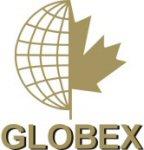Globex Acquires Gold Exploration Target in Arizona, USA
ROUYN-NORANDA, Quebec, March 21, 2024 (GLOBE NEWSWIRE) -- GLOBEX MINING ENTERPRISES INC. (GMX – Toronto Stock Exchange, G1MN – Frankfurt, Stuttgart, Berlin, Munich, Tradegate, Lang & Schwarz, LS Exchange, TTMzero, Düsseldorf and Quotrix Düsseldorf Stock Exchanges and GLBXF – OTCQX International in the US) is pleased to report to shareholders that it has acquired by staking 24 unpatented lode claims totaling a surface area of 200.67 ha (495.84 acres) in Mohave County, northwestern Arizona, USA.
The property herein called the Salt Spring project was staked to cover a large number of gold-bearing quartz veins, small historic mine workings and prospects. The project area is at the northernmost margin of the historic Gold Basin Mining District. This district is large, about 18 km (about 11.18 mi) long north-south and 7 to 11 km (about 6.84 mi) wide east-west.
Gold was discovered in the district in the early 1870's with most of the production prior to 1932 coming from the El Dorado, Excelsior, Golden Rule, and Cyclopic mines. Total historic gold production is not known.
In the area covered by Globex’s Salt Spring property Globex has identified 14 small mine workings and at least 15 prospects. Surface finds (tins, glass, pottery) suggest a period of activity between 1905 and 1914.
Globex already carried out preliminary fieldwork including geological mapping and collected a total of 70 rock samples. The Salt Spring project area and its surroundings are occupied in its southern part by Proterozoic terrain dominated by felsic and mafic migmatite gneiss, a felsic gneiss unit, orthogneiss and dikes or small stocks of granodiorite. To the north of the project area is present a mostly under overburden concealed northeast trending fault/ shear zone that dips at about 45° north. This fault separates the terrain of Proterozoic rocks in the south from a younger, large, undeformed composite granitic-dioritic intrusion. The wide fault zone exhibits certain discovery potential for disseminated low-grade gold mineralization.
Gold-(Cu) deposition occurred in a mesothermal intrusion-related environment. Gold-bearing buck quartz veins, but also quartz-stockwork emplaced along high- and low-angle fractures, faults and concordantly/stratabound along foliation especially along mafic-felsic gneiss contacts. Some individual veins approach lengths of over 200 m (about 656.17 ft), pinch and swell and approach widths of up to 3 m. However gold mineralization is not restricted to quartz veins, it may occur also in late wallrock breccias and disseminated in country rock. From field observations and assay results it was found that gold mineralization can be subdivided into three assemblages having different mineral- and metal associations: Au-only assemblage, Au-Cu assemblage and Au-Cu-Pb-(Ag) assemblage. The Au-Cu and Au-Cu-Pb metal assemblages exhibit zoning with the Au-Cu-Pb assemblage occupying the distal zone. The Au-only assemblage appears to represent a separate gold mineralization stage.
High-grade assay results of vein and stockwork mineralization include chip sample B-1 with 17.8 g/t Au and 0.13% Cu, mine dump grab sample B-6 with 16.2 g/t Au and 0.36% Cu, linear chip sample B-8 over 1.05 m width (quartz stockwork) with 18 g/t Au and 0.09% Cu, mine dump grab sample B-29 with 25.6 g/t Au and 0.17% Cu, linear chip sample B-47 over 0.85 m width (quartz stockwork) with 4.99 g/t Au, and 0.07% Cu linear chip sample B-68 over 0.8 m width (stockwork) with 3.56 g/t Au and 0.03% Cu, and channel sample B-34 over 1.0 m width with 4.85 g/t Au and 0.02% Cu. Samples collected from fault breccias (with less 10% vein quartz fragments) returned 4.41 g/t Au in linear chip sample B-11 over 1.3 m width and 41.4 g/t Au in selected chip sample B-5 over 0.4 m width. Linear chip sample B-19 collected over 3.6 m width from granodiorite and gneiss (without quartz veining) returned 1.79 g/t Au.
Analytical Methods
Samples were placed in labelled plastic bags, sealed with a plastic zip and shipped to American Assay Laboratories (AAL) in Sparks, Nevada, USA for preparation and geochemical analysis. AAL is an ISO 17025 certified laboratory. Samples are crushed and a 300 g subsample pulverized to >85% -75 micron. All samples underwent ICP-OES analysis of a 0.5 g subsample after 5-acid digestion (HNO3, HF, HClO4, HCl and H3BO3) for 11 elements including silver. 5-acid treatment results in near total digest (resistant phases e.g. corundum, ilmenite, rutile are not digested). Gold was analyzed via fire assay of a 30 g subsample and analyzed with ICP-OES. Obtained gold values above 10 g/t were re-analyzed via fire assay of a 30 g subsample and gravimetric determination. Typical internal standards and checks were completed by AAL during analysis.
This press release was written by Matthias Jurgeit, Eurogeologist under the supervision of Jack Stoch, Geo., President, and CEO of Globex in his capacity as a Qualified Person (Q.P.) under NI 43-101.
| We Seek Safe Harbour. | Foreign Private Issuer 12g3 – 2(b) |
| CUSIP Number 379900 50 9 LEI 529900XYUKGG3LF9PY95 | |
| For further information, contact: | |
| Jack Stoch, P.Geo., Acc.Dir. President & CEO Globex Mining Enterprises Inc. 86, 14th Street Rouyn-Noranda, Quebec Canada J9X 2J1 | Tel.: 819.797.5242 Fax: 819.797.1470 info@globexmining.com www.globexmining.com |
Forward Looking Statements: Except for historical information, this news release may contain certain “forward looking statements”. These statements may involve a number of known and unknown risks and uncertainties and other factors that may cause the actual results, level of activity and performance to be materially different from the expectations and projections of Globex Mining Enterprises Inc. (“Globex”). No assurance can be given that any events anticipated by the forward-looking information will transpire or occur, or if any of them do so, what benefits Globex will derive therefrom. A more detailed discussion of the risks is available in the “Annual Information Form” filed by Globex on SEDAR at www.sedar.com.

